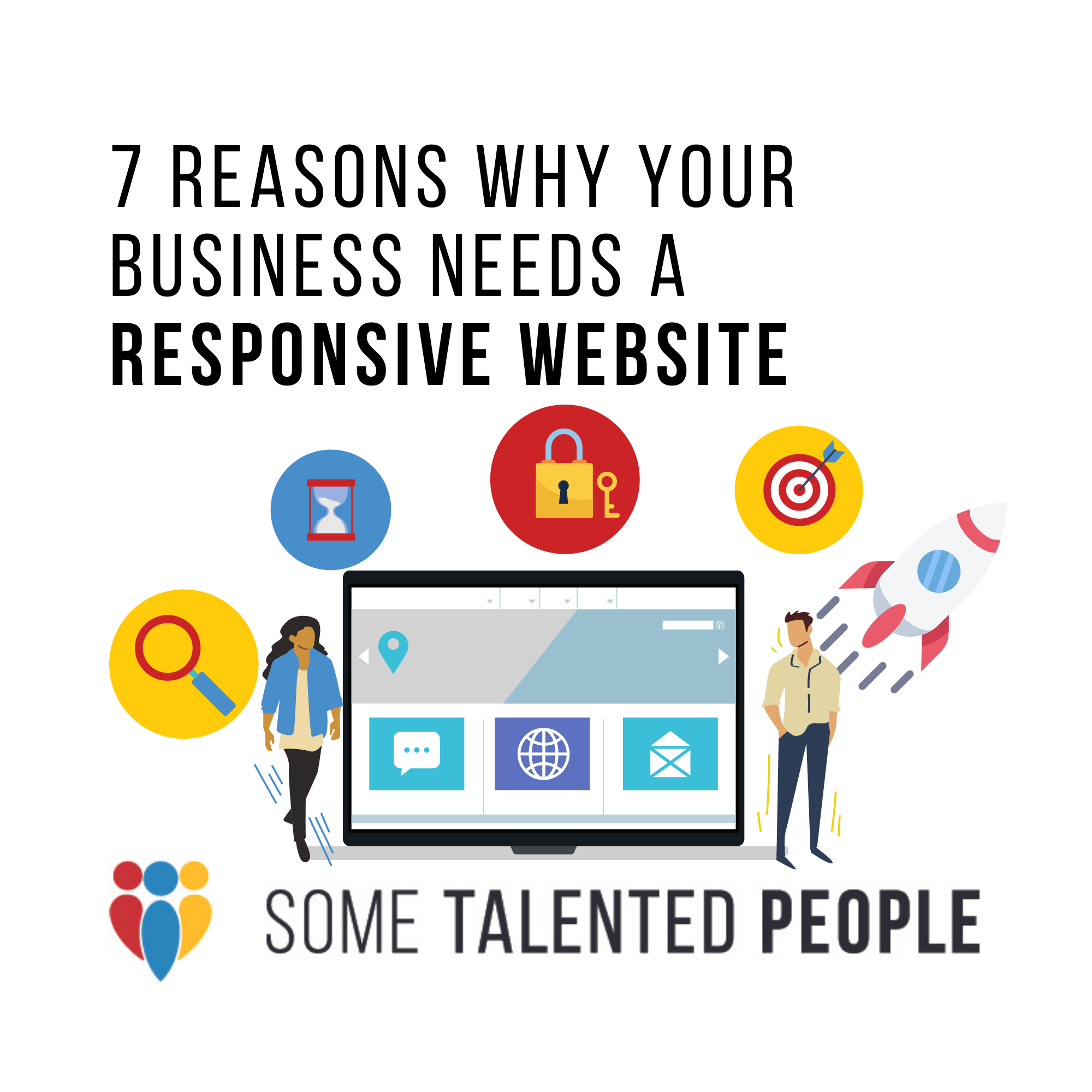7 Reasons Why Your Business Needs a Responsive Website

Whether just starting a company or looking to improve your existing business, you should know that a winning website is one of the most valuable weapons in your digital marketing arsenal - but only if you use it to its full potential.
While the recipe for success includes several ingredients, building a responsive website should be at the top of your agenda. Here’s why:
#1. It Will Boosts Your Online Visibility
Google’s three main products (Search, Images, and Maps) are responsible for nearly 93% of all global traffic. Furthermore, the organic clicks gained through search engines are hot leads. With this in mind, satisfying the Google algorithm for ranking pages is highly advised.
Website responsiveness is one of the most important metrics for determining where your site will rank on the SERPs. As such, your brand awareness with the right audiences will soar.
#2. Responsive Websites Load Faster
A responsive website is one that looks right across all screens and devices. A byproduct of this, however, is that the website will load faster too. Studies show that 70% of consumers admit loading speeds impact their shopping habits. Each second after 2 can be harmful.
If a consumer quits your website due to poor loading times and other issues linked to responsiveness, the harsh reality is that they won’t return. It could cost you dearly. If you don't want to miss out, book a discovery call with us - we use reliable metrics to measure your site speed and actively work to reduce your websites loading time.
#3. Mobile Has Become Dominant
Once upon a time, websites only had to worry about desktop responsiveness. However, over half of all online interactions in the UK are now completed on mobile or tablet. Most people will also conduct their research using several devices over the course of a few days.
If poor website design causes bad customer experiences on just one of those devices, it may harm your conversions. A responsive site will avoid this issue.
#4. A Responsive Site Lets You Keep Everything Under One Roof
Many companies actually operate two websites - one for desktop and another for mobile. However, hosting two sites can be more costly while it’s also harder to manage client data, especially across omnichannel digital marketing, and implement cybersecurity features.
Keeping everything under one roof helps boost website conversion rates because your backend management of both CMS and CRM analytics becomes easier for your team.
#5. Responsive Websites Are Deemed More Trustworthy
Studies show that 94% of online users find it difficult to trust a company that has a poor website design. It should be unsurprising given the growth of digital marketing over the past decade or two. Still, many companies continue to struggle due to their poor layouts.
In short, it makes it look as if you either don’t care or don’t know how to maintain professionalism in the digital age. Either way, the influence on sales figures are damning.
#6. It Upgrades Your Social Media Game
While search engines remain the greatest source of clicks, the role of social media is greater than ever. Responsive websites will find it easier to share content to multiple social media pages for optimal coverage and traffic. Likewise, you’ll gain more shares from followers.
Content marketing and social media marketing will only work when the target website is responsive. If it isn’t the bounce rate statistics will be alarmingly high.
#7. The Path To Conversion Is Easier
Last but not least, the purpose of your site is to gain conversions. This could mean online purchases, store visits, or arranged consultation. A huge 73% of experts state that non-responsive design is the chief reason why people quit websites.
In short, this will stop you from leading visitors to the desired CTA. So, if you want your business to soar, a responsive web design with easy navigation is essential.


